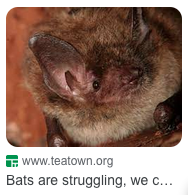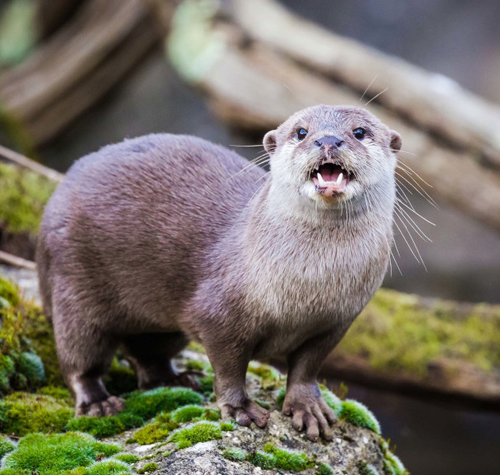
Amphibian
Amphibians are small and adaptable coldblooded animals. These include frogs, newts, salamanders, and toads. Amphibians are all about change, baby. Most amphibians have some ability to resist poison, and all are aquatic at some point in their life cycle.
Ability Score Increase: When determining your character’s ability scores, increase one score by 2 and increase a different score by 1, or increase three different scores by 1. You can't raise any of your scores above 20.
Creature Type: For mechanical purposes, you are a humanoid.
Size: Frogs are usually about 3-5 inches long. You are Small.
Speed: Your walking speed is 25 feet. You also have a climbing speed of 20ft.
Extra Proficiency: You have proficiency in either Stealth or Survival.
Standing Leap: Your long jump is 25ft and your high jump is 15ft, with or without a running start. You may make a standing leap as a bonus action. If you do so, you may use your reaction to impose disadvantage on an enemy’s attack of opportunity. You may use this reaction twice per short rest.
Aquatic Nature: You have a swimming speed equal to your walking speed, and can hold your breath for up to 1 hour. You have advantage on Stealth checks to Hide in swampy terrain, or when submerged in a body of water.
'Don't Eat Me': Your skin secretes a poison that is harmful when ingested. You have advantage on Saving throws against being poisoned, and you have resistance to poison damage. In addition, when you are Swallowed by a creature, it must succeed on a Constitution saving throw at the start of its turn, the DC of which is equal to your 10 + your Constitution modifier + your proficiency bonus. On a failure, it takes 2d6 poison damage and must spit you out. On a success it takes half as much damage, and suffers no other effects.
Languages: Your character can speak, read, and write Common, Amphibian, and one other language that you and your DM agree is appropriate for the character. (See the list above for available languages).

Bat

Bats are flying mammals! Most of them eat insects and fruit, but some drink blurd. Bats use echolocation to see in the dark. Also the german for bat is fledermaus, which means flitter-mouse. Take a moment of your time to sit with this fact.
Bats are usually very social, living in massive colonies as they do, but have developed a reputation of fear they don't deserve.
Ability Score Increase: When determining your character’s ability scores, increase one score by 2 and increase a different score by 1, or increase three different scores by 1. You can't raise any of your scores above 20.
Creature Type: For mechanical purposes, you are a humanoid.
Size: On average, bats are about 4-5 inches long. You are Small.
Speed: Your walking speed is 20 feet.
Flight: Your arms are also wings, giving you a flying speed of 30ft. If you anchor yourself as an action, you can suspend yourself from your feet without needing to make an Ability check. You can’t fly or hang upside-down if you are wearing medium or heavy armor.
Keen Hearing: You have advantage on Perception or Investigation skill checks that rely on hearing.
Sunlight Sensitivity: You have disadvantage on attack rolls and Perception checks that rely on sight when you, the target of the attack, or whatever you are trying to perceive is in direct sunlight.
Echolocation: As an action, you emit a burst of high-pitched noise, audible up to 60ft away, but only perceptible to bats, creatures with the Keen Hearing trait, or creatures with a Passive Perception of 17 or higher. Until the end of your next turn, you can perceive your surroundings within 30ft without relying on sight, and are aware of the location of invisible objects and creatures within that radius. If a creature within 30ft is attempting to Hide from you, it suffers a -5 to its Stealth score. You cannot use this ability if you are deafened, and its effects end early if you take thunder damage. You can also choose to use this trait as a bonus action twice per short rest.
Languages: Your character can speak, read, and write Common, Bat, and one other language that you and your DM agree is appropriate for the character. (See the list above for available languages).

Bird
Ducks, geese, sparrows, nightingales, robins, parrots. This could also fit a kestrel, if you felt that Aarakockra wasn't close enough. However, we're not talking about swans, hawks, eagles, or vultures here.
Waterfowl like ducks and geese are usually very proud, with a reputation for both passion and formality. They do not suffer fools gladly. Passerine birds like sparrows and nightingales are wonderful singers, but have developed a reputation for being superficial gossips and chatterboxes.
Ability Score Increase: When determining your character’s ability scores, increase one score by 2 and increase a different score by 1, or increase three different scores by 1. You can't raise any of your scores above 20.
Creature Type: For mechanical purposes, you are a humanoid.
Size: Anywhere from 3-12 inches tall. You are Small or Medium, choose when you select this race.
Speed: Your walking speed is 25 feet.
Flight: Your arms are also wings, giving you a flying speed of 30ft. You can’t fly if you are wearing medium or heavy armor.
Divebomb: If you dive at least 10ft down towards an enemy, your flight gives you advantage on the first melee attack roll you make against them on your turn. When you use this feature, you may also choose to take the Dodge action as a bonus action. You may take this bonus action twice per short rest.
Languages: Your character can speak, read, and write Common, Bird, and one other language that you and your DM agree is appropriate for the character. (See the list above for available languages).
Choose one of the following subraces:
Waterfowl.
Natural Swimmer: You can hold your breath for 15 minutes. You have a swimming speed of 25ft if you aren’t wearing medium or heavy armor.
Compass Sense: If you have an unobstructed view of the sky, you know which way is north.
Well-Traveled: You learn two additional languages of your choice.
Passerine.
Quick Flight: You have a base flying speed of 35ft, which you can't use if you are wearing medium or heavy armor.
Talons: You have talons that you can use to make unarmed strikes. When you hit with them, the strike deals 1d6 + your Strength modifier slashing damage, instead of the bludgeoning damage normal for an unarmed strike.
Birdsong: You are proficient in the Performance skill, and one musical instrument or artisan’s tool of your choice.

Squirrel
Squirrels and chipmunks are clever, quick, and have fantastic memories. They have a reputation for being scatterbrained and mischevious.
Ability Score Increase: When determining your character’s ability scores, increase one score by 2 and increase a different score by 1, or increase three different scores by 1. You can't raise any of your scores above 20.
Creature Type: For mechanical purposes, you are a humanoid.
Size: On average, squirrels are about 12 inches tall, not including the tail. You are Small or Medium, choose when you select this race.
Speed: You have a base walking speed of 30 feet, and a climbing speed equal to your movement speed.
Squirrel Agility: Your reflexes and agility allow you to move with a burst of speed. When you move on your turn, you can double your speed. Once you use this trait, you can’t use it again until you move 0 feet on your turn.
Graceful Movement: You are proficient in the Acrobatics skill. If you gain this proficiency from your class, you can add double your proficiency bonus to checks made with it. While you are not wearing heavy armor, you can use your Dexterity in place of your Strength score when determining the distance you can cover when making a long or high jump. Additionally, you don’t need a running start to perform such jumps.
Tail Glide: You can use your tail to slow your fall. If you would fall at least 10ft, you can use your reaction to puff out your tail and slow your fall. You can move 10ft in any direction as you do so, and you take no fall damage. You cannot glide while carrying heavy weapons, wearing heavy armor, or while weilding a shield, although you can drop any items as a free action in order to use this reaction.
Languages: Your character can speak, read, and write Common, Rodent, and one other language that you and your DM agree is appropriate for the character. (See the list above for available languages).

Mustelid
Weasels, otters, ferrets, and stoats are all part of the mustelid family.
Ability Score Increase: When determining your character’s ability scores, increase one score by 2 and increase a different score by 1, or increase three different scores by 1. You can't raise any of your scores above 20.
Creature Type: For mechanical purposes, you are a humanoid.
Size: You are Medium, unless you are an Otter, in which case you are Large.
Speed: You have a base walking speed of 30 feet, unless you are an Otter, in which case you have a base walking speed of 25ft. You also have either a swimming or a climbing speed equal to your walking speed, choose when you select this race. The normal restrictions on swim speed and armor do not apply to Otters.
Keen Smell: You have advantage on Perception or Investigation skill checks that rely on scent.
Jaws: You have teeth that you can use to make unarmed strikes. When you hit with them, the strike deals 1d6 + your Strength modifier peircing damage, instead of the bludgeoning damage normal for an unarmed strike.
Stunning Bite: When you hit a creature a melee attack, you can attempt to stun the creature with a bonus action. The target makes a Constitution saving throw DC 8 + your proficiency bonus + your Strength modifier or it is stunned until the start of its next turn. You can use this trait once, and must finish a short or long rest before you can use it again.
Quiet Menace: You are proficient in the Intimidation and Stealth skills.
Languages: Your character can speak, read, and write Common, Rodent, and one other language that you and your DM agree is appropriate for the character. (See the list above for available languages).
Humblewood Races
In addition to the above options, we also have access to Humblewood.
Humblewood races include:
- CROW
- CHICKEN
- DOVE
- RAPTOR
- OWL
- HEDGEHOG
- MOUSE
- RACCOON
- FOX
I don't feel comfortable posting them here for copyright reasons. That said, if any of these sound interesting, hit me up irl, and I'll send you a link to the pdf.